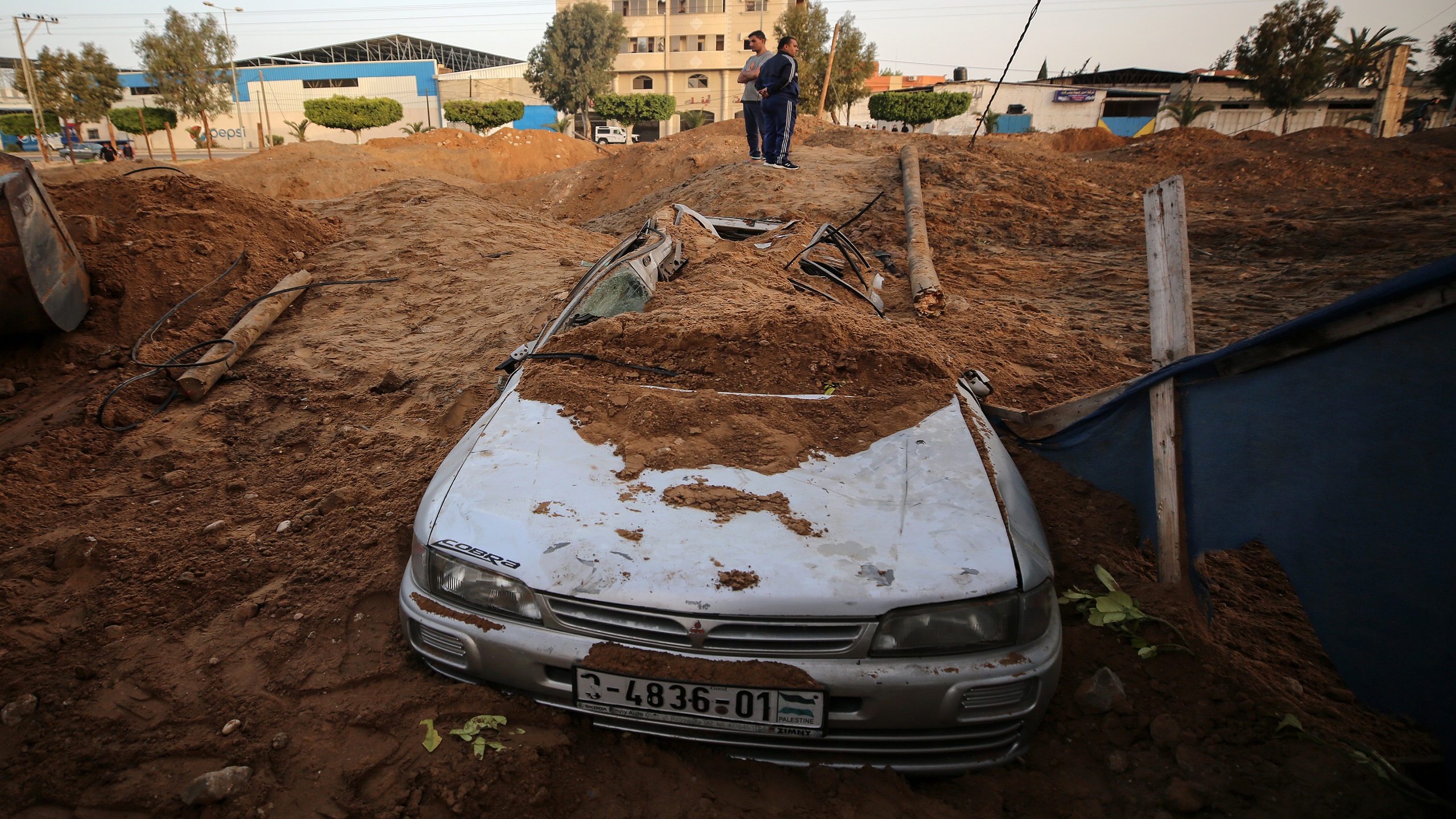Israel Strikes Lebanon, Gaza Following Rocket Attacks on Israel, Jerusalem Violence
Rare strikes in Lebanon come after violence at Jerusalem holy site and a barrage of rockets from Lebanon toward Israel. Both countries tell the UN they are not interested in a conflict, but tensions remain high.
Tense calm is holding as normal life seems to be returning to southern and northern Israel following a tense night. The Home Front Command has lifted restrictions on residents of towns close to the border with the Gaza Strip.
Israel carried out rare strikes in southern Lebanon early Friday, hours after it struck the Gaza Strip early Friday, marking a dangerous escalation in the region following violence this week at Jerusalem’s most sensitive holy site.
In a statement, the Israeli military said it struck targets belonging to the Palestinian group Hamas in southern Lebanon.
Friday’s strikes in southern Lebanon came a day after a volley of rockets fired from there at Israel, wounding two people and causing property damage. The Israeli military said it targeted installations of Hamas, the Palestinian Islamist group, in southern Lebanon.
On Friday, Lebanon’s Foreign Ministry said, “The Israeli aggression threatens stability and violates Lebanon’s sovereignty,” adding that Beirut will bring a formal complaint to the UN Security Council.
The Israeli military was careful to avoid direct military confrontation that may lead to a widening conflict with Lebanon’s Hizbullah armed group, by making its intentions clear that it was targeting only sites linked to Palestinian groups.
The Israeli military said it would not allow Hamas “to operate from within Lebanon” and “holds the state of Lebanon responsible for every directed fire emanating from its territory.”
The head of the UN peacekeeping force in Lebanon, Maj. Gen. Aroldo Lázaro, said he was in contact with Israeli and Lebanese authorities early Friday. The force, known as UNIFIL, said it was working to restore calm and that both Israel and Lebanon had said that they are not interested in a conflict.
“The measures taken during the past day are dangerous and warn of a dangerous escalation,” said UNIFIL.
Meanwhile, the Israeli military “struck targets including terror infrastructures belonging to the Hamas terrorist organization in southern Lebanon”, it said.
The Israeli military said it had struck several Hamas positions in the Gaza Strip, including tunnels and weapons production facilities, with 50 tons of explosives.
During the strikes, Palestinian factions fired at least 40 rockets from the blockaded territory toward southern Israel. One of the rockets fell on a home in Sderot and 14 fell in open areas. No injuries were caused by the rocket fire.
Hazem Kassem, a spokesman for Hamas, said that Israel “bears full responsibility” for the escalation and the violence in Jerusalem and the Gaza Strip.
Israeli Prime Minister Binyamin Netanyahu convened his Security Cabinet for a three-hour meeting late Thursday. “Israel’s response, tonight and beyond, will extract a heavy price from our enemies,” he said in a statement after the meeting.
Lt. Col. Richard Hecht, an Israeli military spokesman, said the army drew a clear connection between the Lebanese rocket fire and the recent unrest in Jerusalem.
“It’s a Palestinian-oriented event,” he said, adding that either the Hamas or Islamic Jihad militant groups, which are based in Gaza but also operate in Lebanon, could be involved. But he said the army believed that Hizbullah and the Lebanese government were aware of what happened and shared responsibility for the situation.
The cross-border fighting erupted during a time of heightened religious fervor – when Jews are celebrating the Passover holiday and Muslims are marking the Ramadan holy month.
No faction in Lebanon claimed responsibility for the barrage of rockets.
Lebanon’s caretaker prime minister, Najib Mikati, condemned the firing of rockets from Lebanon, adding that Lebanese troops and UN peacekeepers were investigating and trying to find the perpetrators. Mikati said his government “categorically rejects any military escalation” and the use of Lebanese territories to stage acts that threaten stability.
In 2021, an escalation also triggered by clashes at Jerusalem’s Al-Aqsa Mosque compound spilled over into an 11-day war between Israel and Gaza’s Hamas rulers.


